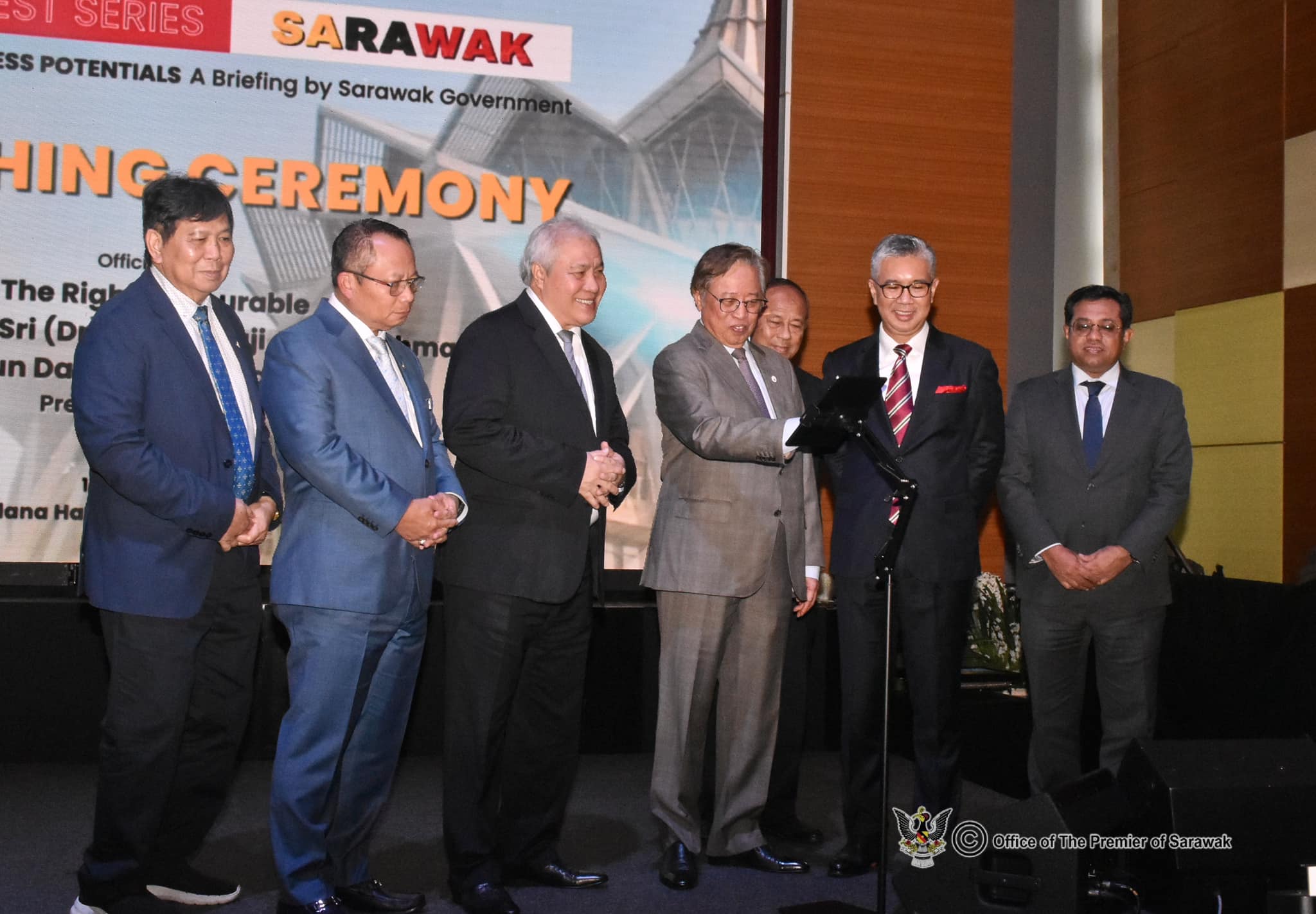JULAI 2024
Premier Welcomes Investors To Collaborate With Sarawak

KUALA LUMPUR, Wed:Sarawak’s Premier Datuk Patinggi Tan Sri Abang Haji Johari Tun Abang Haji Openg today welcomed investors to collaborate with Sarawak leveraging its strength in the renewable energy, oil and gas (O&G) and food sectors.
He pointed out that Sarawak under his leadership had seen vast opportunities in these sectors as the world grappled with the issues of climate change, energy transition and food security.
The Premier said these in his keynote address at the MIDA Invest Series held at MIDA headquarters, here.
He said Sarawak had been recognised by the World Bank as a high-income economy but the Government’s current focus was to translate the high-income status to a high household income.
He told investors at the session that Sarawak was banking on its renewable energy, CCUS and O&G industries to transform the local economy in order to be able to uplift Sarawak’s household income.
Towards this end, all activities related to oil & gas and CCUS in Sarawak must comply with five sets of laws that formed the regulatory framework to ensure that Sarawak and its people would meaninggully benefit from these industries, he again pointed out.
He said that firstly as land is a State matter, activities in the O&G sector and the CCUS space would have to comply with the Sarawak Land Code (1958) that included the continental shelf and the sub-sea.
Secondly, he said the Oil Mining Ordinance (OMO) (1958), another pre-Malaysia day law regulating the mining of oil in Sarawak was also still in force to govern present day activities in the O&G industries.
Thirdly, he pointed out that the Gas Distribution Ordinance (2016) gave the power to the Sarawak government to regulate the distribution of gas on its land that also included the continental shelf.
Fourthly, the Federal Constitution had also spelt out the various rights of Sarawak that must always be upheld and honoured, he said.
The Malaysia Agreement (1963) that had been incorporated into the Constitution was another law that formed the regulatory framework, he added.
In the food sector, he said with its vast tracts of land in various places in the State, Sarawak aimed to be another rice bowl in the country.
Climate change had somewhat degraded the conditions for good rice cultivation in countries like Vietnam and India thus necessitating Sarawak, and the country for that matter to be self-sufficient in rice production, he argued.
Judging from current research with hybrid paddy seeds undertaken by UPM that had shown favourable results, Sarawak would have the capacity to produce 400,000 tons of rice annually, he said.
Earlier, the federal Minister of International Trade and Investment, Senator Tengku Datuk Seri Utama Zafrul Tengku Abdul Aziz and Deputy Premier, Datuk Amar Awang Tengah Ali Hassan, who is the Minister for International Trade, Industry and Investment also spoke.
Also present were State Secretary, Datuk Amar Haji Mohamad Abu Bakar Marzuki, Deputy Minister for International Trade, Industry and Investment, Datuk Dr. Malcom Mussen Lamoh and Deputy Minister for Energy and Environmental Sustainability, Datuk Dr. Hazlan bin Abang Hipni.